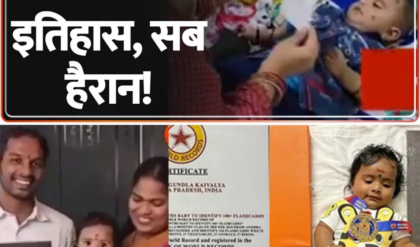Reflections of Hurt: The Story of Rachel Gupta and Unkind Words
.
.

In the heart of a bustling city, where ambition thrived and dreams often clashed, Rachel Gupta found herself at the center of a swirling narrative.
Known for her sharp wit and no-nonsense attitude, Rachel had garnered a reputation that both fascinated and alienated those around her. Yet, beneath her confident exterior lay a complex personal history that shaped her interactions and perceptions.
This story delves into a pivotal moment when a rival, driven by personal grievances, unleashed a torrent of insults aimed at Rachel and her family, revealing the fragile lines between humor, offense, and empathy.
I. Rachel Gupta: The Underdog
Rachel Gupta was not just a name; she was a testament to resilience. Born into a family that faced its share of struggles, Rachel learned early on the importance of hard work and determination.
Her parents, immigrants who sacrificed everything for a better life, instilled in her the values of perseverance and integrity. However, the pressure to succeed often weighed heavily on Rachel, leading her to develop a tough exterior.
As she navigated the complexities of adulthood, Rachel pursued a career in marketing, where her creativity shone. Yet, her past, filled with insecurities and family challenges, lingered like a shadow.
The pressure to uphold her family’s legacy often manifested in sharp comments directed at others, a defense mechanism born from years of feeling judged herself.
II. The Rivalry Ignites
One fateful evening at a networking event, the atmosphere buzzed with ambition and possibility. Professionals mingled, sharing ideas and aspirations.
Among them was Lisa Carter, a colleague known for her biting sarcasm and keen observations. Lisa had long viewed Rachel as a competitor, and a simmering rivalry brewed beneath their professional interactions.
As the evening unfolded, the conversation turned to family dynamics—an area Rachel often approached with caution. When someone mentioned the importance of support systems, Lisa seized the opportunity to strike.
With a smirk, she turned to Rachel and said, “Well, I guess not everyone can rely on their family. I mean, if your parents didn’t set such high standards, maybe you wouldn’t feel the need to put everyone else down.”
The room fell silent. Rachel’s heart raced as Lisa’s words hung in the air like a dense fog. It was a direct jab, one that cut deeper than anyone could see.
It wasn’t just about Rachel’s professional persona; it was a personal attack on her family, their struggles, and the pressures they faced.
III. The Weight of Words
Rachel felt a rush of heat to her cheeks. The laughter that followed Lisa’s comment stung, but it was the weight of the words that lingered. How could someone be so cruel?
She had always tried to uplift those around her, to champion the very principles of hard work and dedication her family had taught her. Yet here was Lisa, taking aim at her insecurities, painting Rachel’s past in a mocking light.
As the evening wore on, Rachel’s mind raced. Memories of family dinners filled with discussions about success and failure flashed through her mind.
The sacrifices her parents had made for her education, the late nights spent studying to escape the shadows of their struggles—all of it felt weaponized in that moment. It was a harsh reminder that vulnerability could be exploited.
IV. The Reaction
In the aftermath of Lisa’s comment, Rachel’s emotions swirled between anger and sadness. She had always believed in confronting conflict directly, but this felt different.
The insult about her family felt like an attack on her identity. Instead of responding with her usual wit, Rachel chose silence, hoping to shield herself from further humiliation.
However, silence can be interpreted in many ways. As whispers circulated among their colleagues, some took Lisa’s side, believing she had simply spoken the truth.
Others, sensing Rachel’s discomfort, felt a pang of empathy but remained passive, caught in the web of social dynamics.
Rachel’s closest friend, Maya, noticed her distress. “You don’t have to take that from her,” Maya urged, her voice low but fierce. “You know who you are. Don’t let her words define you.”
But Rachel remained conflicted, torn between standing up for herself and the desire to avoid escalating the situation further.
V. A Moment of Reflection
That night, Rachel lay awake, grappling with her emotions. The more she replayed the incident in her mind, the more the hurt transformed into clarity.
Lisa’s comments were not just reflections of Rachel’s family; they were a projection of Lisa’s own insecurities. In her attempts to undermine Rachel, Lisa revealed her own vulnerabilities—a need to belittle others to feel superior.
Rachel’s mind drifted to her family. She thought of her mother’s unwavering support, her father’s laughter echoing through their home, despite the challenges they faced.
Those memories reminded her of the strength that came from love, something Lisa’s insults could never take away.
VI. Confrontation
The following week, Rachel decided it was time to address the situation. She approached Lisa during a break, her heart pounding but her resolve firm. “Can we talk about what you said at the event?” Rachel asked, her tone steady.
Lisa’s demeanor shifted, surprise flickering across her face. “Oh, come on, Rachel. It was just a joke. You know I didn’t mean anything by it.”
“Jokes can hurt,” Rachel replied, her voice calm yet assertive. “You made a personal attack on my family, and that’s not okay. I know we have our differences, but there’s no need to bring family into it.”
For a moment, Lisa looked taken aback. Then, a defensive edge crept into her voice. “Maybe you just need to lighten up. Not everyone has a perfect family, you know.”
Rachel took a breath, choosing her words carefully. “I’m aware of that. But I value my family and what they represent. It’s not a joke to me. It’s my life. We all have our struggles, Lisa. I just wish you could understand that instead of trying to tear me down.”
The confrontation hung in the air, heavy with unspoken truths. Lisa’s expression softened slightly, a flicker of realization passing over her features. “I… I didn’t think about it that way.”
VII. Building Understanding
In the days that followed, something shifted between Rachel and Lisa. The confrontation, though tense, opened the door to a dialogue they had never had.
Rachel began to understand Lisa’s own pressures—her desire for recognition and the insecurities that fueled her cutting remarks.
One afternoon, they found themselves sharing a lunch table. “You know, my family has its issues too,” Lisa confessed, her voice quieter than usual. “I guess I thought if I made fun of others, it would make my own situation feel less painful.”
Rachel nodded, recognizing the cycle of hurt they both experienced. “We all have our ways of coping. But tearing each other down isn’t the answer. We need to lift each other up.”
As they continued to talk, walls began to crumble. Lisa shared stories of her upbringing, the challenges she faced, and the expectations that loomed over her.
Rachel listened, finding common ground in their struggles. It was a moment of vulnerability that transformed their rivalry into a tentative understanding.
VIII. Healing and Growth
Over the weeks, Rachel and Lisa began to foster a new relationship built on mutual respect. They found ways to support one another, celebrating successes and discussing setbacks. The healing process was gradual, but it marked a significant shift in how they interacted.
Rachel learned to navigate the complexities of workplace dynamics with a newfound perspective. She realized that humor could be a double-edged sword; it could either unite or divide. As for Lisa, she became more mindful of her words, recognizing the power they held.
The incident served as a catalyst for Rachel, prompting her to reflect on her own communication style. She began to embrace vulnerability, using her experiences to connect with others rather than to deflect.
It became a journey of growth, one that ultimately brought her closer to her colleagues.
IX. Conclusion
The fallout from that fateful networking event became a turning point for both Rachel and Lisa. Through confrontation, reflection, and healing, they forged a new path that transcended their initial rivalry.
Rachel learned the importance of standing up for herself while also recognizing the deeper motivations behind hurtful comments.
In the end, it was a reminder that words have the power to uplift or destroy, and the choice lies within each individual.
Rachel Gupta, with her family’s history woven into her identity, emerged stronger, more empathetic, and ready to face the world—not just as a competitor but as a collaborator, committed to fostering understanding in a landscape often marred by unkindness.
News
Scandalous! Celebrity Caught in a Shocking Incident with a Fan in Public!”
Shocking Incident Involving Kareena Kapoor: A Fan Misbehaves in Front of the Media In a deeply unsettling incident, Bollywood actress Kareena Kapoor Khan found herself at the center of an unexpected and distressing situation when a fan reportedly touched her…
End of content
No more pages to load






